CiCs for HeForShe: The community leaders championing gender equality in the Rohingya refugee camps
Date:
Author: Syeda Samara Mortada
The women among the Rohingya refugees have fled gender-based violence, and continue to endure widespread discrimination in the camps in eastern Bangladesh. But some community leaders are speaking out for gender equality, and challenging widespread practices regarding the treatment and roles of women.
Cox's Bazar, Bangladesh — When he saw Rohingya refugee women struggling to collect their families' fuel rations, on top of their other charges, Camp-in-Charge (CiC) Shamimul Huq Pavel knew something needed to change. "Women were carrying 20 kilogrammes of compressed rice husk by themselves," he said. "It was physically very difficult, especially when she had to carry her child as well."
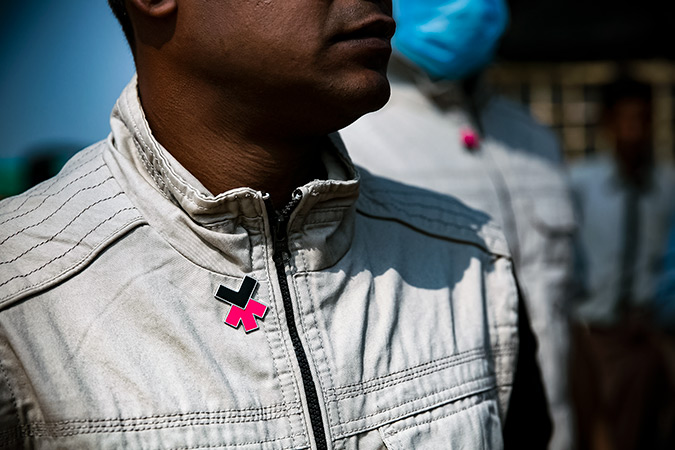
To ease the women's burden, he encouraged the camp's men to collect the heavy sheets of rice husk themselves. He even went as far as saying any adult men who send women in their families to carry out this laborious task would be punished.
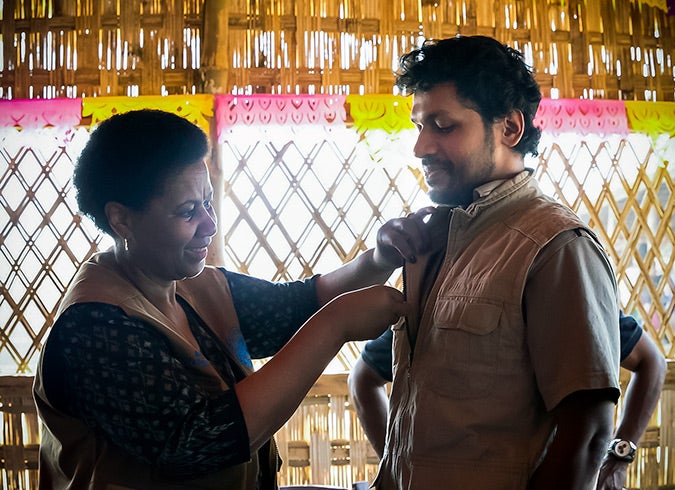
Pavel is one of the twenty CiCs who have been appointed by The Refugee, Relief and Repatriation Commission (RRRC), under the Ministry of Disaster Management and Relief to oversee the day-to-day administration of his section of the refugee camp in Cox's Bazar, across the border from Myanmar. This highly impoverished area has become the world's largest refugee camp in the last 6 months. It is over-populated, resources are limited and the ongoing humanitarian relief effort is overstretched.
The Rohingya crisis has a particularly gendered nature due to the incidence and severity of gender-based violence and restrictive socio-cultural norms. It is estimated that almost every Rohingya woman and girl refugee in Cox's Bazar has either survived or witnessed sexual violence. As such, integrating gender equality into the refugee crisis response is critical.
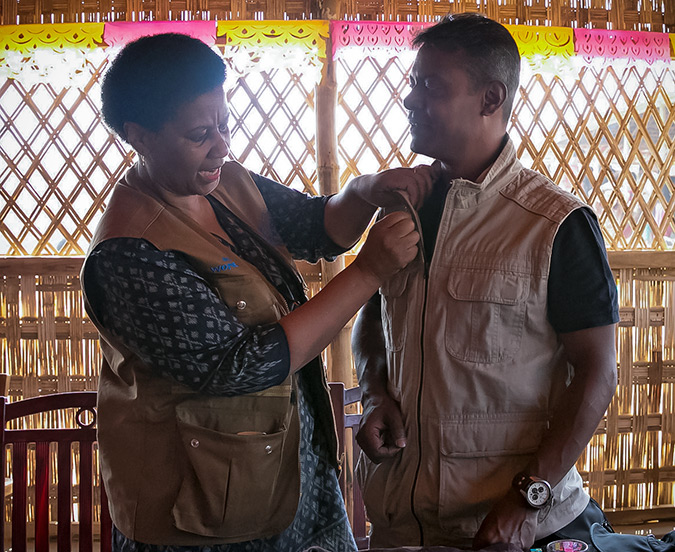
Pavel has earned a reputation for being the most gender-responsive CiC in the camp. When religious leaders asked him to help build a mosque, he readily agreed but on condition that an equal space for prayers be constructed for women as well. "Women and men must have equal access to everything," he explained.
Another CiC trying to follow Pavel's example is Mohammad Talut. He has formed women's groups within his camp sections, like Pavel, and has started a domestic violence prevention and protection centre. "We need to start respecting our women, that is the only way the Rohingya community will move forward," said Talut.
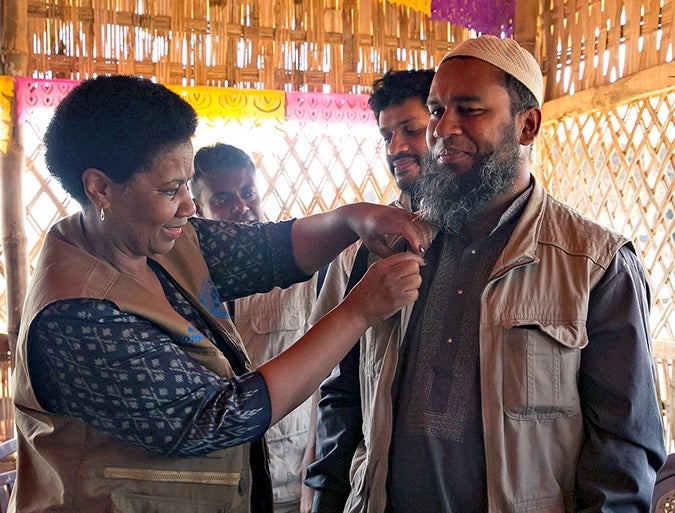
ASM Obaidullah, another CiC, said many women had told him of their experiences of domestic violence. "When I went deeper into the matter, I found out that these incidents were a result of insignificant matters, such as the wife's cooking not being up to the mark," he said. "I then made them reverse roles at home, and told the men to cook all the meals for the family for seven days."
"The men came back to me and told me that they realized how wrong they had been, and that they would never beat their wives again."
The three CiCs have also set up a platform through which cases of domestic abuse can be reported and dealt with.
All three were nominated as champions of the #HeForShe movement during the visit to the camp by UN Women Executive Director Phumzile Mlambo-Ngcuka. The UN Women-initiated #HeForShe campaign encourages men and boys to take a stand and advocate for gender equality.
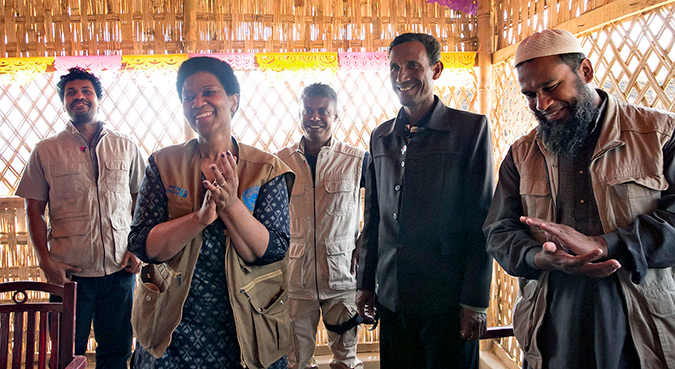
An orientation training on a gender handbook developed by the Inter-Agency Standing Committee was conducted from 10-12 January 2018. After the training Pavel recruited one female leader, or majhi, and 60 female volunteers for each block. Every day, the majhi and four female volunteers go door-to-door in their block collecting information on issues that women face within the community, such as challenges or discrimination. These are then shared with the CiCs for further action.